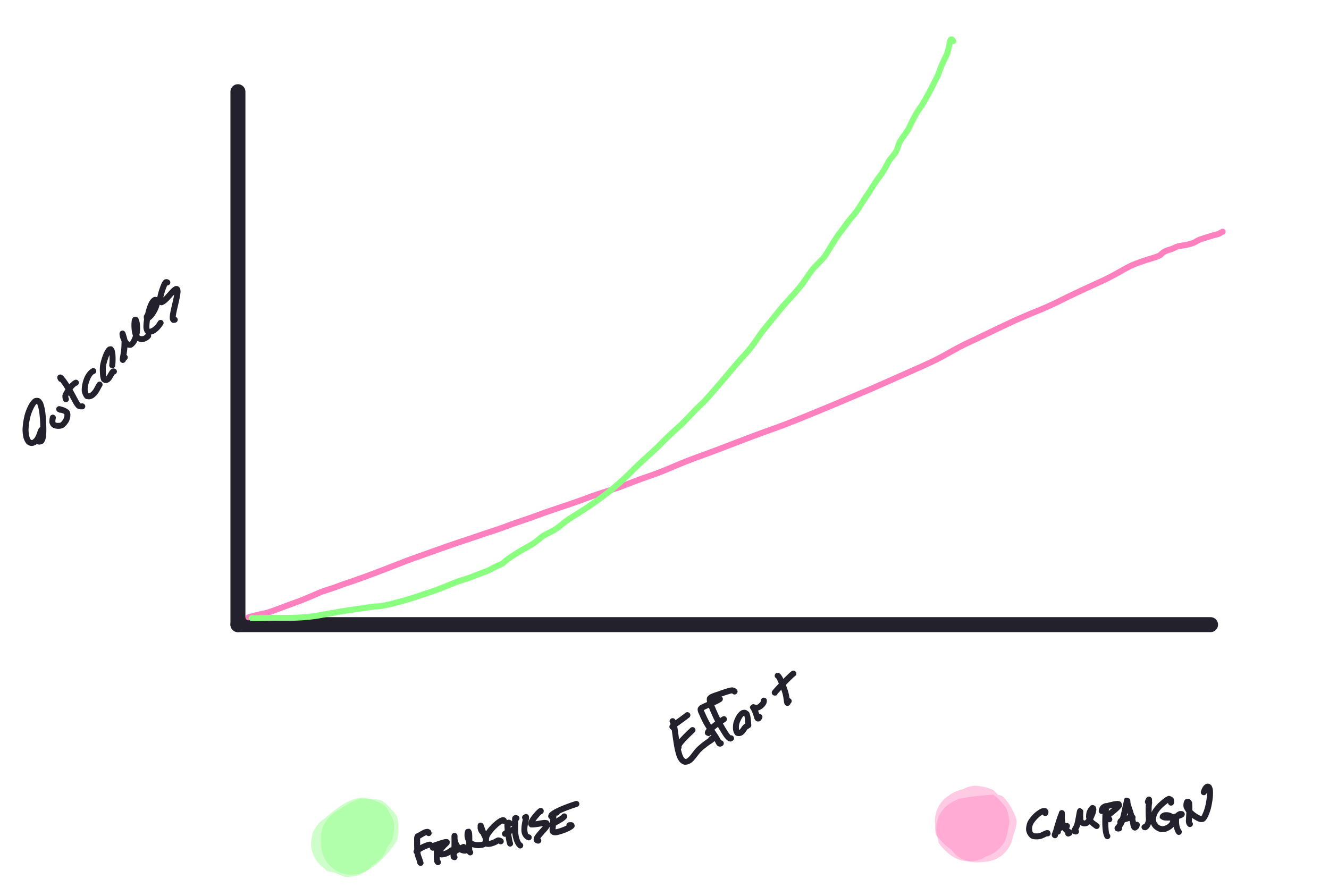Compound Growth: Stop launching marketing "campaigns" and start building "franchises"
Published by Jordan Skole on 5/14/2020
Marketing campaigns are service work
Marketing campaigns are activities you run in order to drive business outcomes, typically one of the six Pirate Metrics1.
From a systems perspective, a marketing campaign's outputs have a linear dependancy on their inputs.
You can think of the work that goes into producing and maintaining a marketing campaign as service work.
The quality of the work depends on the quality of the person (the "operator") producing the work.
If the operator stops producing the work -- if the quantity and/or quality of the inputs decline -- then the quantity and/or quality of the outputs will correspondingly decline.
Once you stop working on a campaign, the campaign stops producing outcomes
The easiest example of a marketing campaign would be a single broadcast-style email blast.
One or more marketers will work on producing a one-time artifact (an email) that is designed to make sense at a given point in time or in response to some other one-time event.
- A feature announcement
- A change in the business
- A holiday
- A global pandemic
The one-or-more marketers will work to produce the artifact, and send the email, and once the email is sent, the campaign will stop producing results.
Without more broadcast sends (inputs) the results will decline, and the better the operators are, the better the campaign results will be.

A visualization representing the correlated steep decline in results when inputs decline
"Franchises" by contrast have long-tail outcomes and operational durability
Instead of focusing on marketing campaigns, growth strategists should invest in building growth franchises.
A franchise is a property, that continues to produce outputs, with operational durability regarding the operator.1
Franchising is one of the few means available to access venture capital without the need to give up control of the operation of the chain and build a distribution system for servicing it. After the brand and formula are carefully designed and properly executed, franchisors are able to sell franchises and expand rapidly across countries and continents using the capital and resources of their franchisees while reducing their own risk.
~Wikipedia
That's an awesome quote, let's unpack it a bit further
Franchising is one of the few means available to access venture capital without the need to give up control of the operation of the chain and build a distribution system for servicing it.
In our metaphor, the growth person is responsible for developing and proving out an outcome producing system. Over the short term, developing the system may result in a negative ROI, no matter how you measure it (time, financial cost, etc...).
However, once the system has been developed, the costs to maintain the system are multiples lower. The system "just runs" and continues to produce outputs multiples higher than the initial inputs.
In economic terms, we would say that the system has high startup costs, but also has a very very high marginal rate of return.
After the brand and formula are carefully designed and properly executed, franchisors are able to sell franchises and expand rapidly across countries and continents using the capital and resources of their franchisees while reducing their own risk.
The next piece of work is to "sell the franchise" to another team internally. This may be a lower salary employee, somebody better suited for this type of work (DISC type "C") another internal team, or possibly even an external agency.